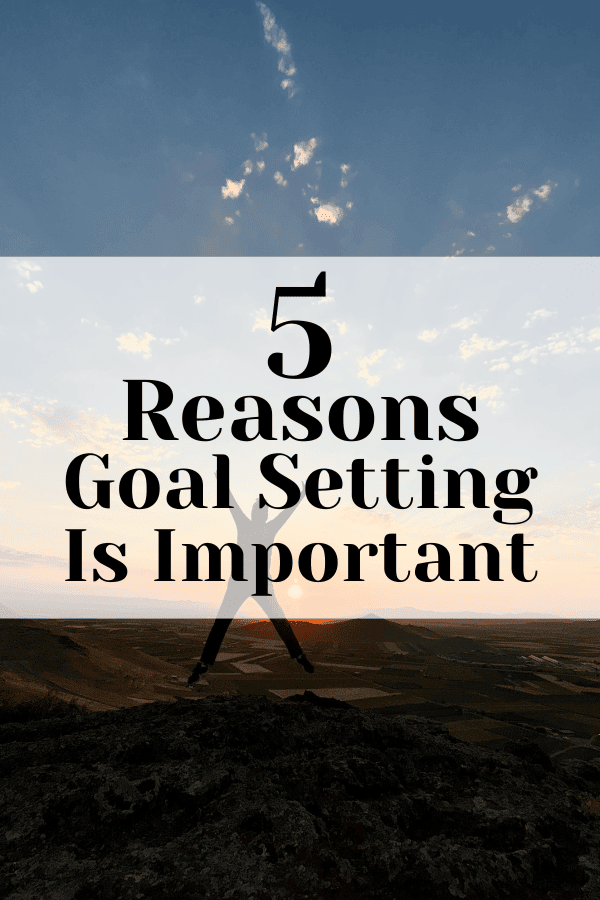How To Escape The Lack Mindset Trap

Having a lack mindset can have such a negative impact on your mental health and your life. It’s where you spend your time focused on what you think you lack and you compare yourself to others. Well no more!
In this blog we are going to explore what having a lack mindset might look like and practical steps that you can take to overcome this negativity.
This blog is about having a lack mindset

Addressing a Lack Mindset
Understanding and addressing a lack mindset is crucial for personal growth and well-being. When left unchecked, a lack mindset can significantly hinder progress and potential. It creates a self-imposed barrier that limits one’s ability to take risks, explore new opportunities, and fully realise their capabilities.
Moreover, a lack mindset can have a ripple effect on various aspects of life. It can impact relationships, career choices, and overall life satisfaction. Recognising and challenging this mindset empowers individuals to break free from the confines of scarcity thinking and embrace a more abundant perspective.
By shedding light on the patterns and prompts associated with a lack mindset, individuals can start to reframe their thoughts and beliefs. This shift lays the foundation for a more positive, growth-oriented mindset—one that fosters resilience, creativity, and a greater sense of fulfilment.
Recognising a Lack Mindset
To effectively shift away from a lack mindset, it’s crucial to first recognise the common thought patterns and behaviours that characterise this mindset. These prompts serve as indicators that you might be operating from a perspective of scarcity. Here are some key prompts to be mindful of:
Constant comparison
Individuals with a lack mindset often find themselves constantly comparing their own circumstances, achievements, or possessions to others. This can lead to feelings of inadequacy and a sense of never measuring up.
Example: “I’ll never be as successful as them. Look at what they have accomplished.”
Negative self-talk
Negative self-talk is a prominent feature of a lack mindset. It involves a continuous stream of self-critical thoughts that reinforce a belief in one’s limitations and shortcomings.
Example: “I’m not smart enough to do this. I always mess things up.”
Fear of taking risks
A lack mindset often manifests as a reluctance to take risks or step outside of your comfort zone. There’s a fear of failure or of losing what little is perceived to be available.
Example: “I can’t afford to take a chance on this opportunity. What if it doesn’t work out?”
Overemphasis on scarcity language
Language plays a powerful role in shaping our mindset. Those with a lack mindset tend to use scarcity-focused phrases like “I can’t,” “I don’t have enough,” or “There’s never enough time/money/resources.”
Example: “I can’t start my own business. I don’t have the capital for it.”
Fixation on past failures
Individuals with a lack mindset often dwell on past failures and setbacks, using them as evidence to support their belief in limitations.
Example: “I tried once before and it didn’t work out. It’s probably not meant for me.”
Avoidance of seeking help or support
There’s a reluctance to seek help or guidance from others because of a belief that one should be self-reliant and that asking for assistance is a sign of weakness.
Example: “I should be able to figure this out on my own. I don’t want to burden anyone.”
By recognising these prompts, you can start to break the cycle of scarcity thinking. It’s important to remember that awareness is the first step towards transformation.
Impact of Lack Mindset
A lack mindset casts a wide shadow, affecting various facets of life. Let’s delve into how this mindset can have a significant impact on crucial areas such as career, relationships, and personal growth.
Career
In the realm of career, a lack mindset can be particularly limiting. It often leads to a reluctance to pursue opportunities, take on challenges, or aim for higher positions due to a fear of failure or a belief that success is out of reach.
Relationships
A lack mindset can also influence how we navigate relationships. It may lead to feelings of unworthiness, causing individuals to settle for less than they deserve or avoid pursuing meaningful connections.
Personal Growth
Personal growth and development can be significantly stunted by a lack mindset. It hinders the willingness to step out of your comfort zone, try new things, and embrace opportunities for learning and self-improvement.
Understanding the far-reaching impact of a lack mindset is essential in recognising the need for change. By acknowledging these effects, you can take proactive steps towards cultivating a more empowering and abundant mindset, ultimately unlocking your full potential in various aspects of life.
Root Cause of Lack Mindset
Understanding the origins of a lack mindset is crucial in addressing and ultimately overcoming it. Let’s delve into some potential sources, including upbringing and societal influences, and how they can contribute to the development of a lack mindset.
Upbringing
Our early experiences and the environment we grew up in play a significant role in shaping our mindset. If we were raised in an environment where resources were limited or where there was a constant emphasis on scarcity, it can deeply influence our beliefs about what is available to us.
For example, if a child consistently hears phrases like “money doesn’t grow on trees” or witnesses their parents constantly struggling to make ends meet, they may internalise the belief that resources are scarce and hard to come by. This early conditioning can lay the foundation for a lack mindset in adulthood.
Societal influences
The broader societal context we’re exposed to, including cultural norms and societal narratives, can also contribute to a lack mindset. Messages from media, advertising, and societal expectations can shape our perceptions of what is attainable or valuable.
For instance, in a society that often glorifies material wealth and success, individuals may feel a constant pressure to acquire more and may believe that they are lacking if they don’t meet certain standards. This external pressure can reinforce a sense of scarcity, leading to the adoption of a lack mindset.
Negative experiences and trauma
Personal experiences, particularly negative ones or instances of failure, can deeply influence our mindset. Traumatic events or repeated experiences of disappointment can create a heightened sense of scarcity and limit one’s belief in what is possible.
For example, someone who experienced a significant financial loss or a series of setbacks may develop a heightened fear of scarcity, leading to a perpetuating cycle of a lack mindset. These experiences can create deeply ingrained beliefs about one’s limitations.
Recognising the roots of a lack mindset is the first step towards liberation from its constraints. By understanding how upbringing, societal influences, and personal experiences contribute to its development, you can begin the process of reframing your beliefs and adopting a more empowering perspective.
Shifting From Lack to Abundant Mindset
Transitioning from a lack mindset to an abundance mindset is a transformative journey that involves reshaping your beliefs and perspectives. Here are strategies and practical tips to facilitate this shift:
Practice gratitude
Cultivating a habit of gratitude is a powerful way to shift your focus from what you lack to what you already have. Regularly acknowledging and appreciating the blessings in your life can foster a sense of abundance.
Start a gratitude journal. Each day, write down three things you’re grateful for. They can be big or small, from a supportive friend to a beautiful sunset.
Reframe scarcity language
Pay attention to the language you use. Replace scarcity-focused phrases with more empowering ones. This subtle shift in language can have a profound impact on your mindset.
Instead of saying “I can’t afford it,” try saying “I choose to allocate my resources differently right now.”
Embrace abundance in small things
Start recognising abundance in everyday moments. It could be the abundance of love, opportunities, or natural beauty around you. By acknowledging these small blessings, you train your mind to see abundance in all areas of life.
Take a few moments each day to pause and reflect on something positive in your immediate environment.
Set clear goals
Setting specific, achievable goals gives you a clear direction and a sense of purpose. This helps shift your focus from what you lack to what you’re actively working towards.
Break down your larger goals into smaller, manageable steps. Celebrate your progress along the way.
Practice self-compassion
Be kind and forgiving to yourself, especially in moments of perceived failure or setback. Recognise that everyone faces challenges, and it’s a part of the growth process.
When you face a setback, instead of being self-critical, ask yourself, “What can I learn from this experience?”
Surround yourself with positivity
Your environment and the people you surround yourself with can influence your mindset. Choose to be around individuals who uplift and inspire you.
Seek out communities, books, or podcasts that promote positive thinking and personal growth.
Visualise success and abundance
Visualisation is a powerful tool. Take a few minutes each day to vividly imagine yourself achieving your goals and experiencing abundance in all areas of your life.
Create a vision board with images and quotes that represent the abundance you want to manifest.
Remember, shifting from a lack mindset to an abundance mindset is a gradual process. Be patient with yourself and celebrate each step forward. By incorporating these strategies into your daily life, you’ll gradually reshape your mindset and open yourself up to a world of limitless possibilities.
Cultivating an Abundant Mindset
Nurturing an abundance mindset involves actively training your mind to focus on possibilities, opportunities, and the belief that there is enough for everyone. Here are specific practices and exercises to help foster this mindset:
Practice abundance affirmations
Affirmations are positive statements that reinforce empowering beliefs. By regularly affirming abundance, you rewire your subconscious mind to accept and expect abundance in all areas of your life.
Start your day with affirmations like “I am open to receiving abundance in all forms” or “I believe in the limitless possibilities available to me.”
Visualise abundance meditation
Visualisation is a powerful technique to reinforce an abundance mindset. In this meditation, you vividly imagine yourself experiencing abundance in various aspects of your life.
Find a quiet space, close your eyes, and visualise scenarios where you feel abundant – be it in your career, relationships, or personal growth.
Practice generosity
Actively giving to others reinforces the belief that there is enough to go around. This could be through acts of kindness, volunteering, or simply sharing your resources.
Set a goal to perform one act of kindness or generosity each day, no matter how small. It could be as simple as buying a coffee for a colleague or offering a listening ear.
Gratitude journaling with a twist
Expand your gratitude journaling by not only acknowledging what you’re grateful for, but also expressing gratitude for the abundance you anticipate in the future.
Alongside your usual gratitude entries, add a section where you express thanks for the abundance you expect to attract into your life.
Create an abundance vision board
A vision board is a visual representation of your goals and desires. By creating one focused on abundance, you surround yourself with images that inspire and reinforce your belief in abundance.
Collect images, quotes, and symbols that represent abundance to you. Arrange them on a board and display it where you’ll see it regularly.
Key Points
In wrapping up our exploration of the lack mindset, let’s recap the key takeaways and encourage you to embark on your journey towards embracing abundance.
Summary of key points
Throughout this blog post, we’ve delved into the intricacies of a lack mindset and its profound impact on various aspects of our lives. We identified common thought patterns and behaviours associated with this mindset, traced its roots to upbringing and societal influences, and discussed practical strategies for making the shift towards an abundance mindset.
We explored practices like gratitude journaling, visualisation, and generosity, which play a pivotal role in nurturing an abundance mindset.
Taking action towards change
Now, armed with these insights, it’s time to take actionable steps towards overcoming a lack mindset. Here’s what you can do:
Start with Awareness: Recognise when scarcity-based thinking arises in your daily life. Awareness is the first step towards change.
Practice Gratitude: Incorporate a gratitude journal into your routine. Regularly acknowledging the blessings in your life will shift your focus towards abundance.
Visualise Your Abundance: Spend a few moments each day vividly imagining yourself experiencing abundance in all aspects of your life.
Set Clear Goals: Define specific, achievable objectives that align with your desires. Break them down into manageable steps to track your progress.
Embrace Generosity: Practice giving, no matter how small the gesture. This act reinforces the belief in the abundance that surrounds you.
Surround Yourself with Positivity: Seek out communities, books, and resources that foster positive thinking and personal growth.
Create an Abundance Vision Board: Compile images and quotes that represent the abundance you want to manifest. Display it where you’ll see it regularly.
Remember, progress may be gradual, but each step forward is a victory. By consistently implementing these practices, you’ll gradually reshape your mindset and unlock a world of limitless possibilities.
In embracing an abundance mindset, you’re not only transforming your own life but also influencing those around you. Together, we can create a ripple effect of positivity and empowerment. So, take that first step today, and watch as your life unfolds with newfound richness and potential.
This blog post was about having a lack mindset
Share this post: on Twitter on Facebook





